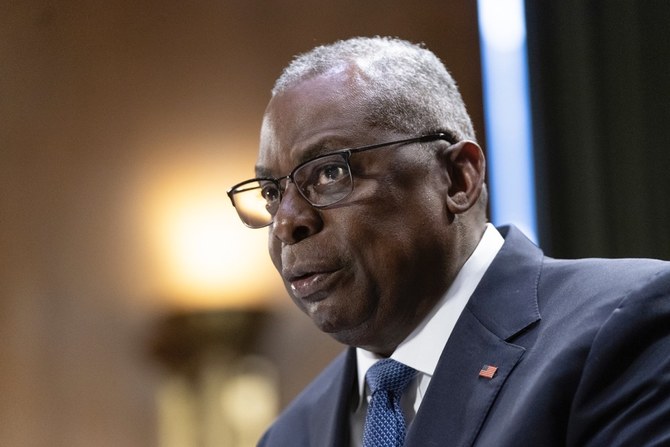C. Todd Lopez
Secretary of Defense Lloyd J. Austin III today addressed journalists at the Pentagon to discuss recent health issues that twice took him away from his official duties, the attacks that occurred in Jordan which resulted in the death of three soldiers, and the ongoing attacks against cargo ships transiting the Red Sea.
Early last month, Pentagon officials revealed Austin had undergone surgery at Walter Reed National Military Medical Center in Bethesda, Maryland, in December, to treat prostate cancer. They also revealed that complications related to that surgery again put him in the hospital and took him away from his duties in early January.
In neither instance had the secretary told President Joe Biden about those hospitalizations. Today, Austin said he regretted not having told the president about his condition.
“We did not handle this right,” he said. “I did not handle this right. I should have told the president about my cancer diagnosis. I should have also told my team and the American public. And I take full responsibility. I apologize to my teammates and to the American people.”
Austin said Deputy Defense Secretary Kathleen Hicks assumed his responsibilities both times he was away.
“I want to make it very clear that there were no gaps in authorities and no risk to the department’s command and control,” he said. “At every moment, either I or the deputy secretary was in full charge.”
He said the reason he failed to reveal his medical condition to the president, the rest of the Defense Department, or to the American people was his own sense of personal privacy.
“I was being treated for prostate cancer,” he said. “The news shook me. And I know that it shakes so many others, especially in the Black community. It was a gut punch. And, frankly, my first instinct was to keep it private. I don’t think it’s news that I’m a pretty private guy. I never like burdening others with my problems.”
Austin said he now realizes that since he accepted the role of secretary of defense, he no longer is entitled to the degree of privacy he was previously accustomed to.
“Taking this kind of job means losing some of the privacy that most of us expect,” he said. “The American people have a right to know if their leaders are facing health challenges that might affect their ability to perform their duties, even temporarily. So, a wider circle should have been notified, especially the president.”
Since his stay in the hospital, Austin said he has met with the president and discussed what happened.
“I’ve apologized directly to President Biden, and I’ve told him that I’m deeply sorry for not letting him know immediately that I received a heavy diagnosis and was getting treatment,” Austin said. “He has responded with a grace and warm heart that anyone who knows President Biden would expect. And I’m grateful for his full confidence in me.”
The secretary also said that his failure to notify the American people about his diagnosis, treatment and temporary departure from duty was a missed opportunity to discuss an important health issue.
“I was diagnosed with a highly treatable form of cancer, a pretty common one,” he said. “One in eight American men will get prostate cancer. One in six Black men will get it. I’m here with a clear message to other men, especially older men: Get screened. Get your regular checkups. Prostate cancer has a glass jaw. If your doctor can spot it, they can treat it and beat it.”
After it was revealed that Austin had been away from his duties, the Defense Department’s inspector general sent a memorandum announcing a review to examine the roles, processes, procedures, responsibilities and actions related to the secretary of defense’s hospitalization.
“[The review will] assess whether the DOD’s policies and procedures are sufficient to ensure timely and appropriate notifications and the effective transition of authorities as may be warranted due to health-based or other unavailability of senior leadership,” the Jan. 10 memorandum said.
In addition to the inspector general’s review, the secretary’s chief of staff directed the DOD’s director of administration and management to conduct a 30-day review of the department’s notification process for assumption of functions and duties of the secretary of defense.







